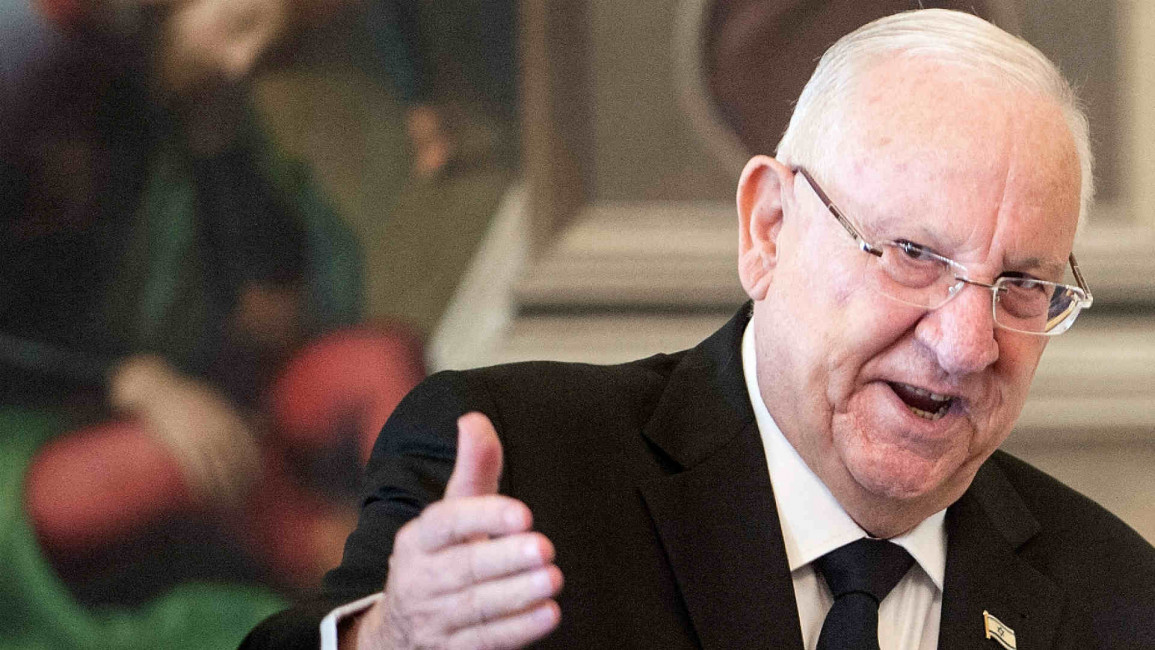Israeli president begins talks on appointing prime minister
The talks should be a formality, given the results of last week's general election. The ruling Likud and its traditional nationalist and Jewish ultra-Orthodox parties hold a 65-55 parliamentary majority and are expected to vouch for Prime Minister Binyamin Netanyahu.
Rivlin started his series of meetings on Monday with officials from Likud. He'll then meet members of the ten other elected factions, in order of largest to smallest, to hear their recommendations, before formally appointing the candidate he believes has the best chance of building a parliamentary majority.
In one of the president's few non-ceremonial roles, he asks that leader to form a government within 28 days, with room for a two-week extension.
Rivlin has said his consultations with the parties who secured seats in the 120-seat Knesset will be broadcast on live television for the first time "in the name of transparency".
|
Prime Minister Netanyahu seeks to form a right-wing governing coalition with five right-wing and ultra-orthodx Jewish parties after securing victory in last week's high-stakes Israeli election.
Four of these parties have confirmed they back Netanyahu, Reuters reported, with just Former Defence Minister Avigdor Lieberman of the ultranationalist Yisrael Beitenu party holding out on his confirmation.
The results from last week's vote came despite corruption allegations against 69-year-old Netanyahu and kept him on course to become Israel's longest-serving prime minister later this year.
Netanyahu spoke in the early hours at the Likud's post-election party in Tel Aviv last Wednesday and called the election a "magnificent victory." "It will be a right wing government, but I will be prime minister for all," he said.
His main rival Benny Gantz conceded defeat on Wednesday night. With 35 seats won for his centrist Blue and White alliance, Gantz would likely be charged with forming a coalition should Netanyahu be unsuccessful.
The election was in many ways a referendum on the incumbent premier who has built a reputation as guarantor of the country's security and economic growth, but whose populism and alleged corruption left many ready for change.
He engaged in populist rhetoric that critics said amounted to the demonisation of Palestinian-Israelis and others.
True to form, Netanyahu issued a controversial pledge only three days before the election, saying he planned to annex Jewish settlements in the occupied West Bank should he win. This move would destroy remaining hopes for Palestinian statehood.
"This threat is not merely a result of Netanyahu's fourth term as prime minister but rather a decision that is tied to earlier colonisation of Palestine. We cannot only speak of a right-wing government - it is important to link historically to the 1948 Nakba. Failure to do so will put Palestinians at an even bigger disadvantage."
Netanyahu, nicknamed King Bibi in Israel, has been premier for a total of more than 13 years.
Agencies contributed to this report.



